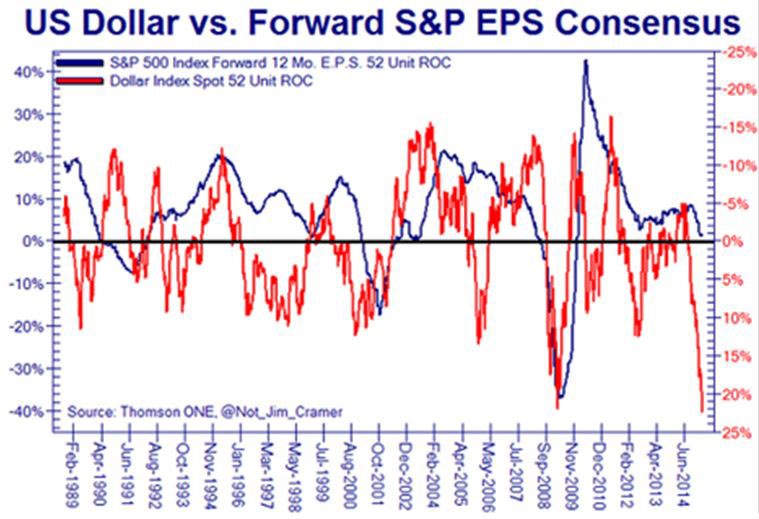Why Investors Should Avoid The Dollar ETF Investing Video Audio Jay Taylor Media
Post on: 17 Сентябрь, 2015 No Comment

David Fabian: The only trade getting as much (or more) attention than crude oil right now is the U.S. dollar. Just recently, the U.S. dollar hit a new 11-year high against the euro and continues to be the trade du jour for currency traders looking to capitalize on global central bank easing.
Most investors in the ETF realm follow the biggest and most well-known currency fund – the PowerShares U.S. Dollar Index Bullish Fund (UUP). This ETF tracks the value of the U.S. dollar versus a basket of 6 major foreign currencies. Put simply, when UUP is rising, it means that other currencies such as the euro, Japanese yen, and British pound (among others) are falling.
UUP debuted in 2007 and has recently swelled to over $1.1 billion in total assets as this recent uptrend has reached near vertical heights. A look at a 3-year chart of UUP shows just how sharp this 9-month rally has been in the context of a long-term sideways malaise.
Now, the purpose of this article is not to persuade you on the future direction of the U.S. dollar or pontificate on macro-economic events. Rather, it is to educate and inform you about the complex structure of UUP and its underlying makeup that may make it prohibitive for most mainstream investors to own .
In order to invest in currency futures, UUP must be structured as a partnership rather than the more traditional ETF legal designation as a trust. This is an important distinction because shareholders are considered limited partners and will receive a K-1 at the end of the year that doesn’t correspond to any direct gains, losses, or dividends in the actual investment itself.
This will be a tax headache for investors that own UUP in a taxable account and may even impact IRA assets as well. This K-1 will have to be dealt with on your tax return and may cause unintended consequences for those that don’t remember to declare this extra form in their annual tax filing.
I recommend you consult a tax professional for your unique situation before buying or selling UUP and thoroughly research this issue in the fund’s prospectus as well.
- Asset Allocation Is Significantly Skewed

While UUP does technically invest in a basket of 6 major world currencies, the asset allocation is significantly skewed towards the euro and yen. The euro makes up 57.60% of the total assets, while the yen is in the number two slot with 13.60% of assets. This makes the fund very top heavy for a sliding euro and less of a diversified global currency play.
This overweight nature has worked well during the last several months, but that doesn’t mean the euro will continue its corrective phase indefinitely. There will likely be some reshuffling along the way that lends itself to other players such as the Japanese yen or Swiss franc.
One alternative U.S. dollar investment on my radar is the WisdomTree Bloomberg U.S. Dollar Bullish Fund (USDU). I like USDU because it allocates to 10 countries instead of just 6 with less emphasis on the euro and inclusion of some emerging market nations as well. In addition, this fund does not generate a K-1 and has a lower overall expense ratio of 0.50% compared to 0.75% for UUP.
- Consider The Risk Of Non-Correlated Asset Classes
It’s easy to get excited about a trend that everyone is talking about, but when it comes to currencies you may want to pause for a minute and consider the risks. Investing in UUP isn’t like investing in a traditional stock or bond fund. It’s an entirely different beast that entails an understanding of complex global forex markets.














